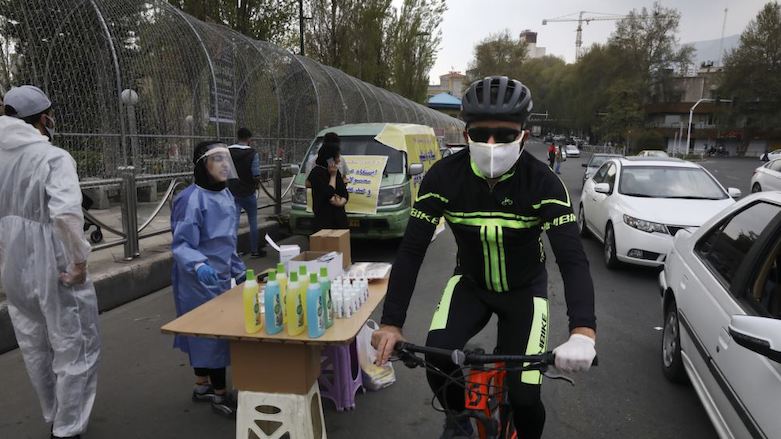Iran relaxes COVID-19 restrictions, amid charges it is underreporting cases

WASHINGTON DC (Kurdistan 24) – On Saturday, “low-risk businesses” in Tehran were allowed to reopen, following a similar measure adopted last week for the rest of the country.
Yet on Sunday, the following day, the Chairman of the Tehran City Council, Mohsen Hashemi, warned that the real number of coronavirus cases in the country was significantly higher than the official government figures and if restrictions were relaxed too early, that could lead to a resurgence of the disease.
Tehran, along with the religious center of Qom, 100 miles to the south, are the two epicenters of the coronavirus in Iran.
Until recently, Iran had the largest number of reported cases in the Middle East. That stemmed from its close ties with China, where the disease originated. On Saturday, however, Turkey overtook Iran as the Middle Eastern country with the largest number of such cases.
Yet there are serious questions about the reliability of Iran’s statistics. Last week, a report released by the Iranian parliament concluded that the country’s death toll was some 80 percent higher than the official figure.
If so, that would still leave Iran with the most cases of any Middle Eastern country.
The parliamentary report attributed the underreporting of the disease, in part, to the fact that only those people who died in hospitals after testing positive for the virus were included in the official figures. Additionally, the country suffered from a serious lack of testing, it said.
Iranians remain wary
Despite the reopening of small shops in Tehran, as well as some factories and warehouses, much of the public remained at home, the German press agency, DPA, reported on Saturday.
“Most shops in northern Tehran and in the city centre remained empty as citizens opted to protect their health by remaining at home,” it said.
A key factor in confronting the virus is significant and speedy measures to contain it. Both South Korea and Germany took such measures and have been among the most successful countries.
However, as Hashemi complained on Sunday, Tehran responded only slowly to the emerging threat. In Iran, the virus first appeared in Qom, and as Radio Farda reported, both the representative of Supreme Leader Ali Khamenei and the head of intelligence of Iran’s Islamic Revolutionary Guard Corps (IRGC) “strongly opposed” closing Qom’s religious sites to the public.
Now, to address public concerns, the Iranian regime has taken some extraordinary steps. In 1979, in the early days of the Iranian revolution, Ayatollah Ruhollah Khomeini, declared April 18 as Army Day.
On Saturday, instead of the usual parade of military equipment, including the country’s latest missiles, disinfecting vehicles and other medical equipment filed past the reviewing stand of senior officers who were wearing face masks.

Of course, the intended message was that the government – and the army, in particular – were protecting the people.
However, the effect on the virus of spraying disinfectant in the air is unclear. “There is no scientific basis at all for all the spraying and big public works programs,” Michael Osterholm, director of the Center for Infectious Disease Research and Policy at the University of Minnesota, told The New York Times. “It’s at best wasteful, and at worst we’re just putting disinfectants into the environment that we don’t need.”
Others, however, suggested that because so little is known about the virus, the spraying might, possibly, have a positive effect.
Earlier in the week, the Commander of the IRGC, Maj. Gen. Hossein Salami, “unveiled an advanced device that can remotely detect people infected with the novel coronavirus,” the Iranian news outlet, Tasnim, which is close to the IRGC, reported.
“By creating a magnetic field, the device is able to detect every coronavirus infection case within a 100-meter radius,” Tasnim quoted Salami as saying.
That is nonsense, of course. And, it is, perhaps, a sign the regime thinks its mishandling of the coronavirus crisis may have led to a serious problem. On Sunday, in a report entitled, “Stirrings of unrest around the world could portend turmoil as economies collapse,” The Washington Post suggested that the economic problems associated with the virus and the world-wide lockdowns could lead to political unrest.
The story did not mention Iran, but it did report problems in next-door Iraq: “there have been spontaneous but brief outbursts of rage in the city of Nasiriyah and the impoverished Baghdad neighborhood of Sadr City.”
Editing by Karzan Sulaivany
